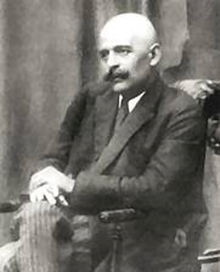
Georgi Ivanovich Gurdjieff was born in Gyumri, Armenia (then known as Alexandropol) around the year 1866.
With his question regarding the sense and aim of man's existence, Gurdjieff began to search for answers in central Asia, the Middle East and North Africa. Seeking communities that preserved traces of ancient knowledge, he gained access to many esoteric schools and returned with a practical spiritual teaching designed to help man in his pursuit of self-knowledge and to realize his full potential through the development of a new kind of attention.
Arriving in Moscow in 1913, he began to teach his ideas which were aimed toward making such understanding more accessible to western seekers. An essential component of his system was the seeker's contact with a community of others like themselves. Gurdjieff found that work in a group supports the conditions necessary for the development of this new attention.
Gurdjieff left Russia in the wake of the Bolshevik Revolution and established a residence in Paris in 1922, where he began attracting followers to his newly formed "Institute for the Harmonious Development of Man". Prior to his death in 1949, Gurdjieff designated successors to continue the transmission of his ideas and methods, primarily as an oral teaching. Consequently, his work continues in groups throughout the world today. In addition to this oral tradition, he left a rich legacy of original music, writings and sacred dance.